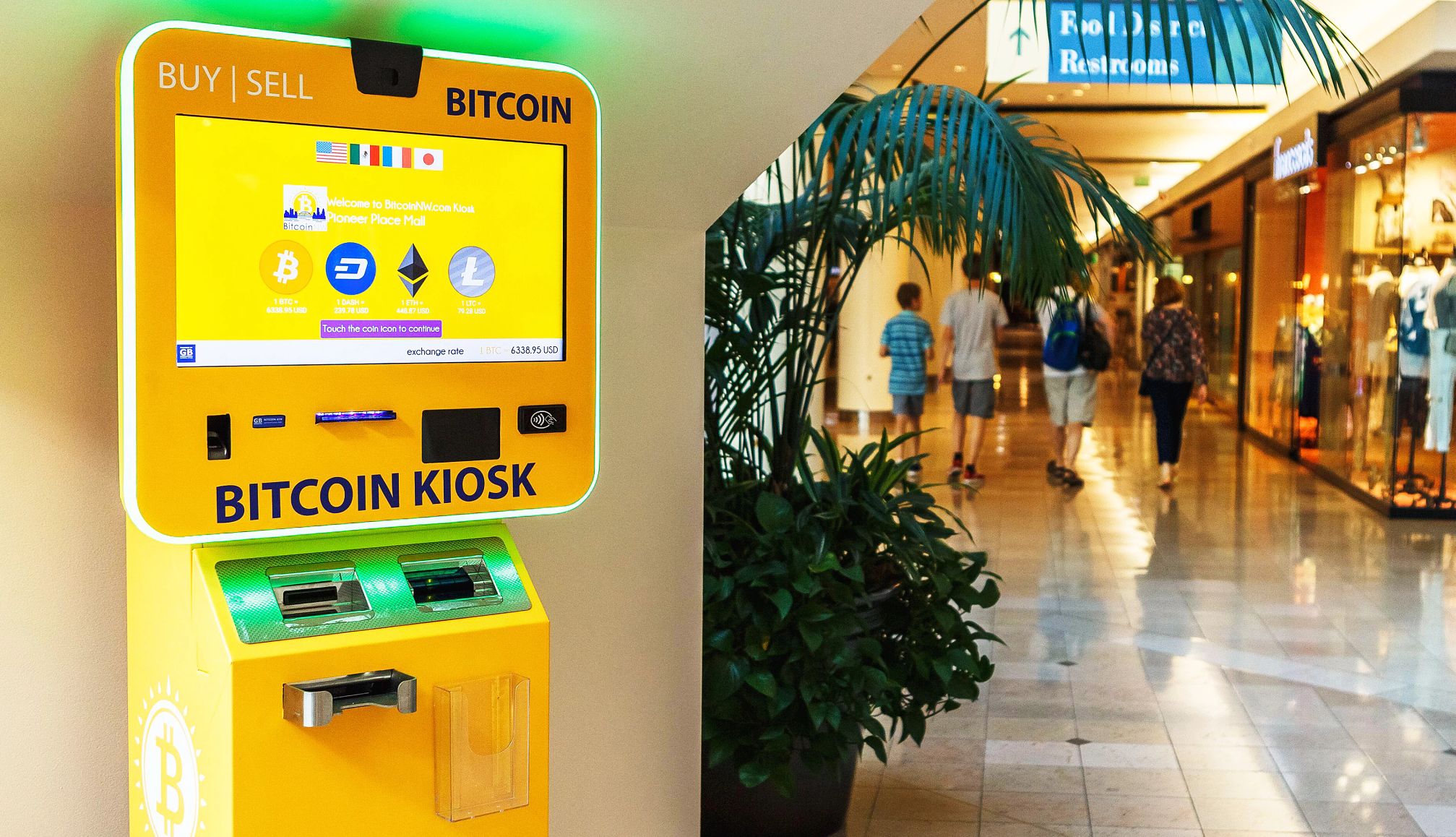
AARP Fights Back Against Scammers Who Use Crypto ATMs to Steal Millions
- Select a language for the TTS:
- UK English Female
- UK English Male
- US English Female
- US English Male
- Australian Female
- Australian Male
- Language selected: (auto detect) - EN
Play all audios:

A bitcoin kiosk machine at Pioneer Place shopping mall in downtown Portland, Oregon. Alamy Stock Photo Facebook Twitter LinkedIn
Machines that exchange cash for cryptocurrency, known as crypto kiosks, are popping up in supermarkets, convenience stores, gas stations and other spots across the country. But these ATM
look-alikes are prime vehicles for scams that often target older adults.
To combat this growing problem, AARP is advocating for state laws that regulate crypto kiosks and safeguard consumers. So far this year, we’ve helped establish laws in Nebraska. We’re also
working with lawmakers in 17 other states — Arizona, Arkansas, Colorado, Florida, Hawaii, Illinois, Iowa, Maryland, Massachusetts, New Jersey, North Dakota, Oklahoma, Rhode Island, South
Carolina, Texas, Vermont and Washington — to either draft or pass bills that adopt our expert recommendations, which include daily transaction limits, state operator license requirements,
scam warnings, refund options for losses due to fraud, plus others.
LIMITED TIME OFFER Memorial Day Sale! Join AARP for just $11 per year with a 5-year membership Join now and get a FREE gift. Expires 6/4
Join Now
In Nebraska, the legislation that adopted much of AARP’s model recommendations was signed into law on March 12. The law now requires $2,000 transaction limits on deposits and withdrawals
plus full-refund options for new customers. It also requires crypto ATM operators to hold state money transmitter licenses, post fraud warning notices on their machines and issue transaction
receipts for traceability, among other measures.
“This is a significant victory for Nebraskans and law enforcement,” said Todd Stubbendieck, state director of AARP Nebraska, in a statement on the governor’s signing. “With stronger
protections against cryptocurrency theft, we are better equipped to safeguard Nebraskans’ hard-earned life savings, especially for those aged 50 and older, from financial exploitation.”
Stakeholders lobby for LB609 in Nebraska. (Left to right) Jina Ragland, AARP Nebraska; Todd Stubbendieck, AARP Nebraska; Josh Planos, Better Business Bureau; Cindy Koenig-Warnke, Lincoln
Police Department; Senator Eliot Bostar, Nebraska Legislature; Sheriff Aaron Hanson, Douglas County Sheriff’s Office; June Ryan, AARP Nebraska; and Dexter Schrodt, Nebraska Independent
Community Bankers. AARP Nebraska
In other states, AARP is fighting for similar protections. In North Dakota, for example, we’re urging the passage of House Bill 1447, which would also limit the amount a customer can deposit
or withdraw to $2,000 per day and order ATM operators to provide a customer service line during certain hours, among other measures. And in Washington, which already requires state
licensing for crypto ATMs and some signage that warns of scams, we’re advocating for Senate Bill 5280, which would up the reporting and record-keeping requirements of those with licenses to
improve oversight, among other measures.
“Cryptocurrency fraud has taken a quantum leap in recent years,” said Josh Askvig, state director of AARP North Dakota, during a Jan. 22 committee hearing on North Dakota’s bill. The
proposed legislation, he said, “will create important consumer protections to save older North Dakotans from having their hard-earned money, sometimes their life savings, stolen by criminals
misusing crypto kiosks.”
How crypto ATM scams work
